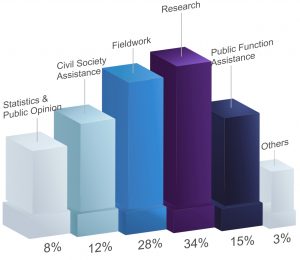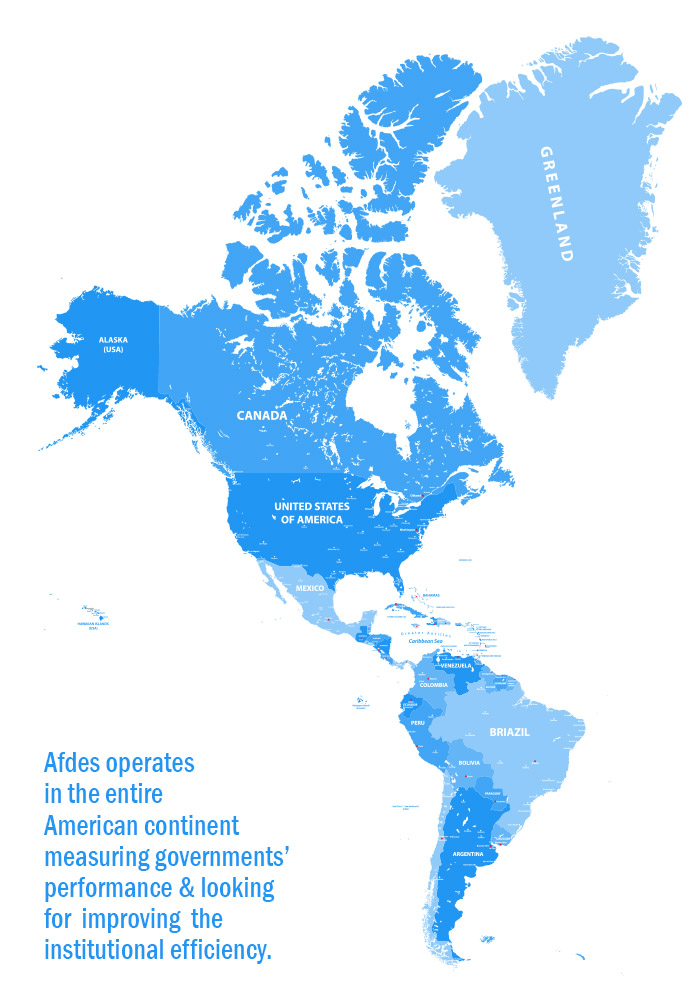Electoral Integrity in the United States.
To talk about Electoral Integrity in the United States takes more than goodwill, it takes a responsible and serious commitment to get to the truth,…
To talk about Electoral Integrity in the United States takes more than goodwill, it takes a responsible and serious commitment to get to the truth,…
“The integrity, independence, and impartiality of those who are responsible for the preparation and execution of an electoral event must be indisputable…” ulnerability, understood as…
En el año 2014 el entonces primer ministro de Antigua y Barbuda, Gaston Browne, confirió autoridad como diplomático al ciudadano colombiano Alex Saab y le…
En el año 2014 el entonces primer ministro de Antigua y Barbuda, Gaston Browne, confirió autoridad como diplomático al ciudadano colombiano Alex Saab y le…
“Álvaro Uribe afirmó: ‘las consecuencias del sistema judicial que heredamos del gobierno anterior… Ese conjunto normativo vinculado a la JEP, consagró impunidad total a atrocidades…
One of the biggest challenges now facing modern democracies is the legitimation crisis. While it is a worldwide phenomenon, its impact is particularly striking in developing countries in the Americas, where the social demand has grown beyond institutional response capacities to the twenty-first-century problems and demands. This institutional inability has eroded citizens’ confidence in political structures and has polarized many societies within the region while creating the ideal conditions for democratic fracture. In response, AFDES is developing a series of institutional strengthening strategies involving both civil society and the public sector.
Considering the complexity of the interaction between political systems and different social structures, as well as many of its different underlying processes, building a healthy relationship between public and private spheres takes much more than a simple unification of common interests. Recognition, as an essential part of political legitimacy, is difficult to earn within polarized contexts, in which politicians juxtapose themselves to institutions. Here, is where governance and accountability play a fundamental role involving active civic participation back by coherent legislation and autonomous and independent institutions.

Our program actively contributes to both theoretical and practical fields aiming to bring together a complex set of multi-disciplinary techniques to identify, measure, and analyze the variables of democratic stability.
Obtaining specialized knowledge through creative and systematic work, the scientific research at AFDES is a fundamental pillar of our activities.
This process comprehends both qualitative and quantitative analysis and data interpretation helping to better understand socio-political phenomena.
Presenting and publishing our study results take place in digital versions covering a wide variety of informative platforms and materials.
Organizing communities and making them competent to engage public sector for the benefit of their interest and goals has been one of the most challenging and rewarding tasks in countries hit by political instability. Planning, organization, and implementation of civic activities targeting both active public institutions and legislative processes have largely contributed to creating potential awareness in groups and individual citizens. This very process has paved the way for channeling information within the public sector and use it to identify relevant stakeholder groups in the community to outline the methods of response capacity creating effective feedback between institutions and private citizens. learn more.
Afdes recognizes that democracy is much more than periodic elections. In this sense, and to make democracy properly function, political systems require leaders that govern in an accountable, and responsive manner along with an active civil society fully competent to be able to establish and sustain regular communication processes with elected officials. Therefore, the essential elements of good governance such as participation, transparency, and accountability are anchored to areas such as combating corruption, rule of law, mainstreaming of conflict prevention, democratization, decentralization, and administrative reforms among others, which optimizes the decision-making process, increase political stability and individual competence. Click here to learn more.
Indicators of the health of democratic governance can be evaluated according to three basic measurable elements: Legitimacy, validity and reliability. The valid quantitative analysis reflects the analytical concepts to which all these three elements relate. However, measuring government studies requires close attention to normative concepts in both political science and governance theories, as well as to structuring of correspondent empirical indicators.

What is the American continent doing to protect itself from the 21 century treats? Are modern democracies prepared for the new generation of policies necessary to keep their countries safe and being functional at the same time in terms of basic democratic values? Should the defense budget substantially increase? How do future focalized conflicts look like, and what is the role the great powers play in a rapidly transforming world.
AFDES is putting together the elements involved in comparative comprehensive research aiming to identify, analyze, and explain the complex relationship between globalization and security within unstable, and potentially risky contexts, triggered by the political and economic crisis. In this sense, we assess the effectiveness of institutional cooperation in the Americas involving both private and public sectors, considering the fast-growing polarization towards the main international actors.
Independently, AFDES measures and evaluates the impact of security policy locally implemented to reduce crime and increase confidence in security institutions using timeline databases and public opinion studies in order to establish correlations between security and stability.
An Election Observation Mission is an activity of institutional democratic endorsement aiming to study, measure, monitor and evaluate the regularity, transparency and reliability of elections that take place in the three electoral sub-stages (pre-election period, elections day and post-election period) This civic exercise is centered on democratic values that provide part of the essential legitimacy to strengthen democratic model thorough civic participation. The independent, impartial observation of elections is vital to strengthen democratic institutions, building public confidence in electoral processes, helping to prevent fraud, intimidation, and violence. Click Here to learn more.